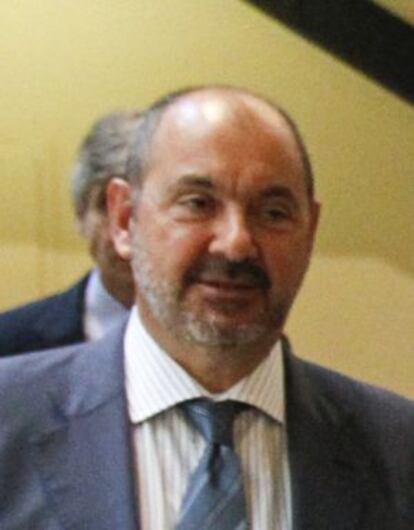Catalonia’s health department number two contracted firms he represented
Josep Maria Padrosa's private companies billed CatSalut for over 14 million euros in 2012

The alleged activities of the number two in Catalonia’s regional health department, Josep Maria Padrosa, provide the latest and most striking example of the uncomfortably close relationship between the public and the private sector in the Catalan healthcare system.
Padrosa is the director of the Catalan Health Service, CatSalut, the public body through which the regional government finances hospitals and health services. He is also the representative of six private companies that in 2012 billed CatSalut for over 14 million euros.
It is a fact that, as well as potentially violating two Catalan incompatibility laws, also calls into question the harsh cuts that have been made at CatSalut since Padrosa’s arrival. Cost-cutting measures have reached 20 percent in some hospitals since 2011, but have not surpassed nine percent in Padrosa’s companies.
This latest case of alleged irregularities in the Catalan healthcare system dates back to December 2010. After the first election victory of his CiU Catalan nationalist bloc, premier Artur Mas chose Boi Ruiz, president of the Catalan Hospitals Union employers’ organization, as his health chief. Ruiz took along with him to the department the leadership of the union, where Padrosa was the director of Corporación Fisiogestión, a holding company for a group of firms operating in the physiotherapy, physical therapy and speech therapy sectors. Padrosa also represented 16 of the Corporación’s companies, whose main and practically only client is the regional government.
Padrosa left the group’s board when he was named CatSalut director, but his powers at the companies were not revoked, admits the administrator of the holding company, Carlos Núñez. “Our administrative practice is not to repeal powers, because we watch over them and we can guarantee that Padrosa has not used them,” he explained on Tuesday. Nevertheless he also admitted that “seen in hindsight, it is evident a mistake might have been made.”
Padrosa declined to respond to EL PAÍS’s requests to comment and the regional health department limited itself to saying that “the law has been observed in all competitions and proceedings.”
Andrés García, a member of the Platform for Victims of the Health Cuts (Pars), believes “this is a new case of the perversion of public service by people with evident interested in the private sector.
“This has been a constant since the arrival of Boi Ruiz, the ex-president of the employers’ organization, at the helm of the health department. Practically all the important posts that have been appointed are people who come from the private sector and see in the public one a source of financing for the private system from which they come,” he added.
Tu suscripción se está usando en otro dispositivo
¿Quieres añadir otro usuario a tu suscripción?
Si continúas leyendo en este dispositivo, no se podrá leer en el otro.
FlechaTu suscripción se está usando en otro dispositivo y solo puedes acceder a EL PAÍS desde un dispositivo a la vez.
Si quieres compartir tu cuenta, cambia tu suscripción a la modalidad Premium, así podrás añadir otro usuario. Cada uno accederá con su propia cuenta de email, lo que os permitirá personalizar vuestra experiencia en EL PAÍS.
¿Tienes una suscripción de empresa? Accede aquí para contratar más cuentas.
En el caso de no saber quién está usando tu cuenta, te recomendamos cambiar tu contraseña aquí.
Si decides continuar compartiendo tu cuenta, este mensaje se mostrará en tu dispositivo y en el de la otra persona que está usando tu cuenta de forma indefinida, afectando a tu experiencia de lectura. Puedes consultar aquí los términos y condiciones de la suscripción digital.









































